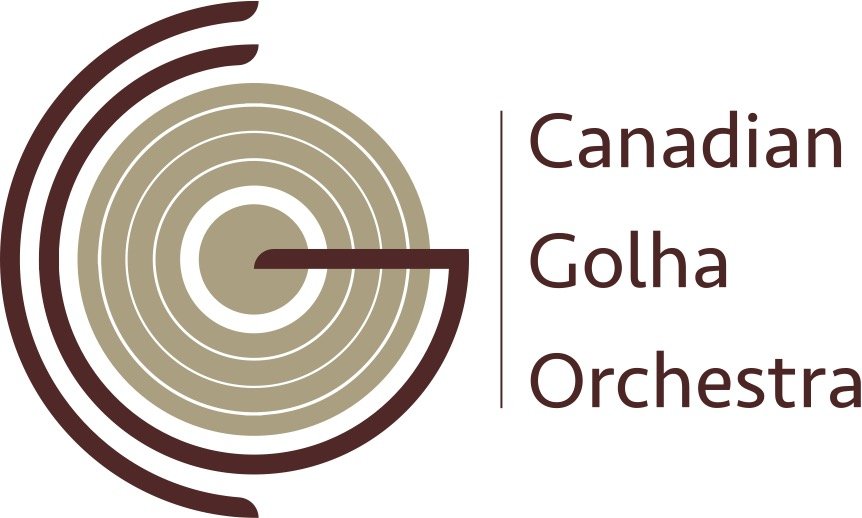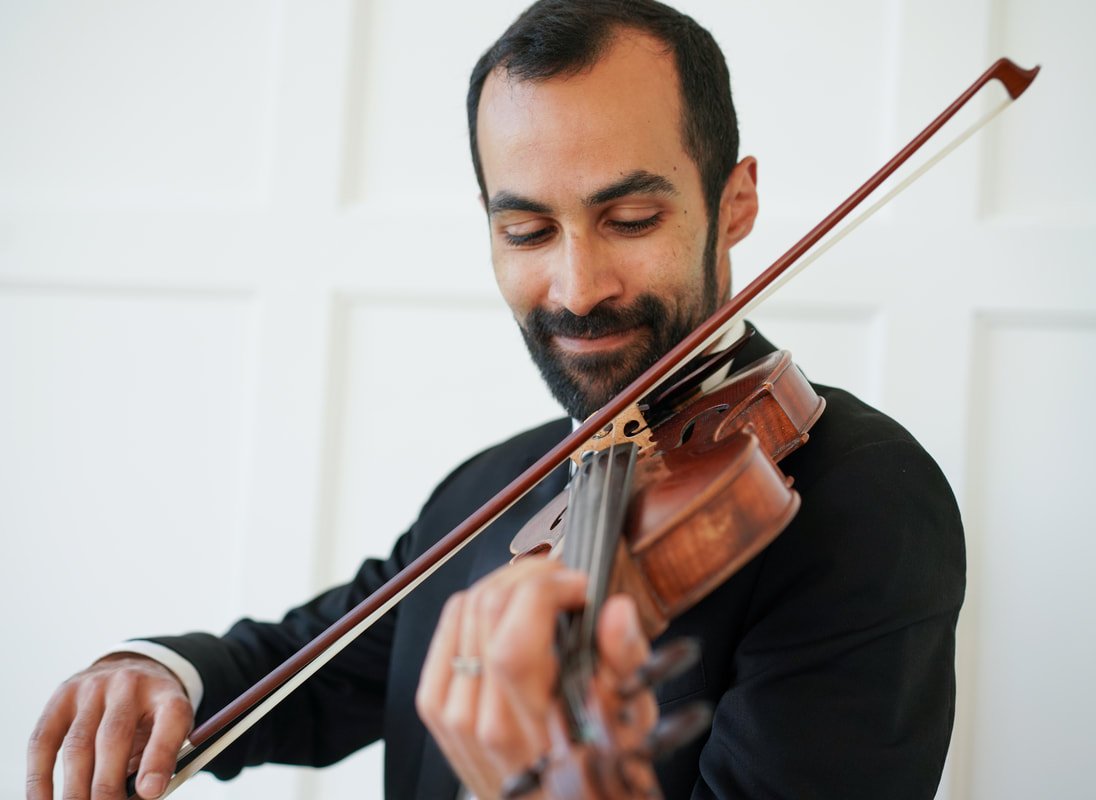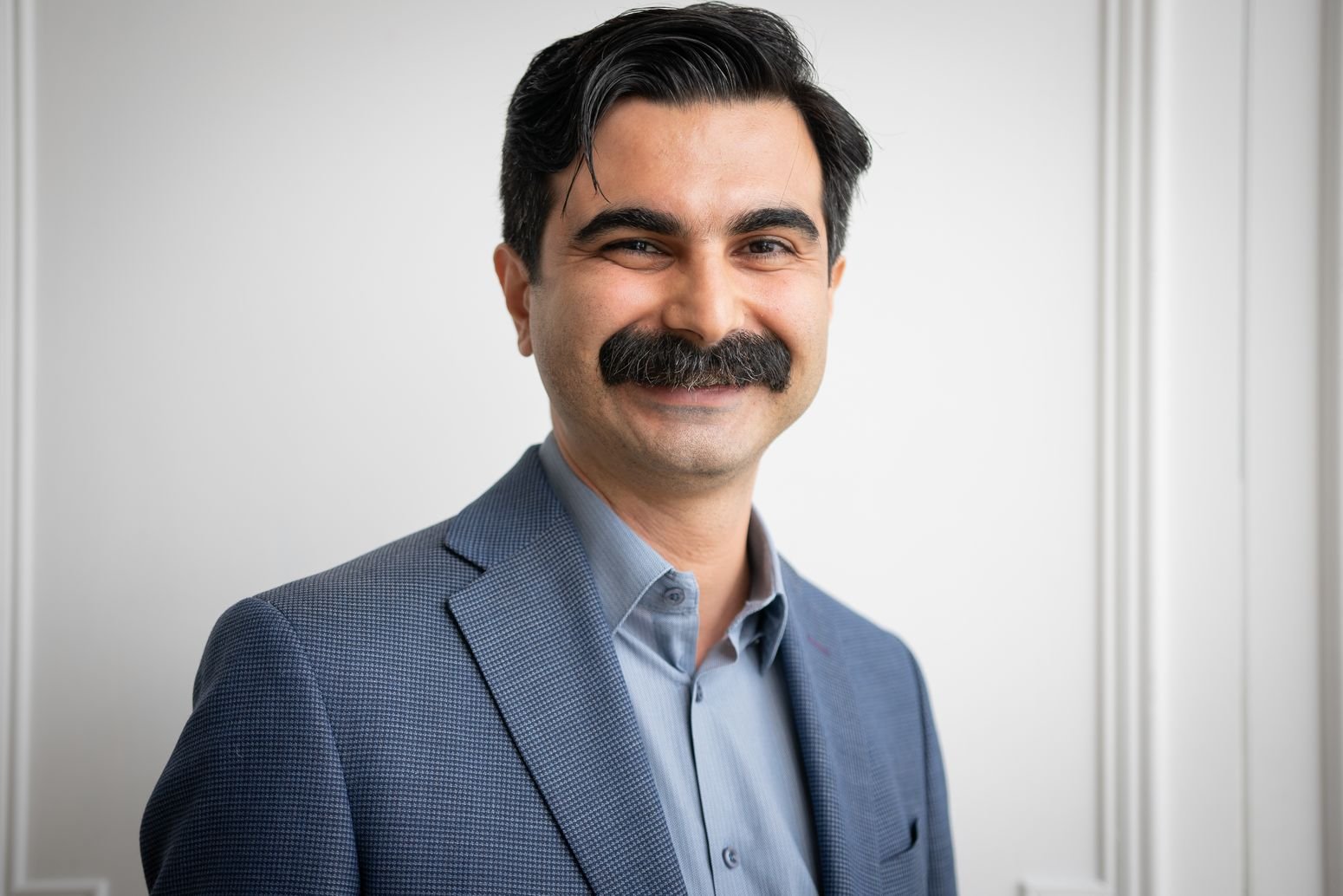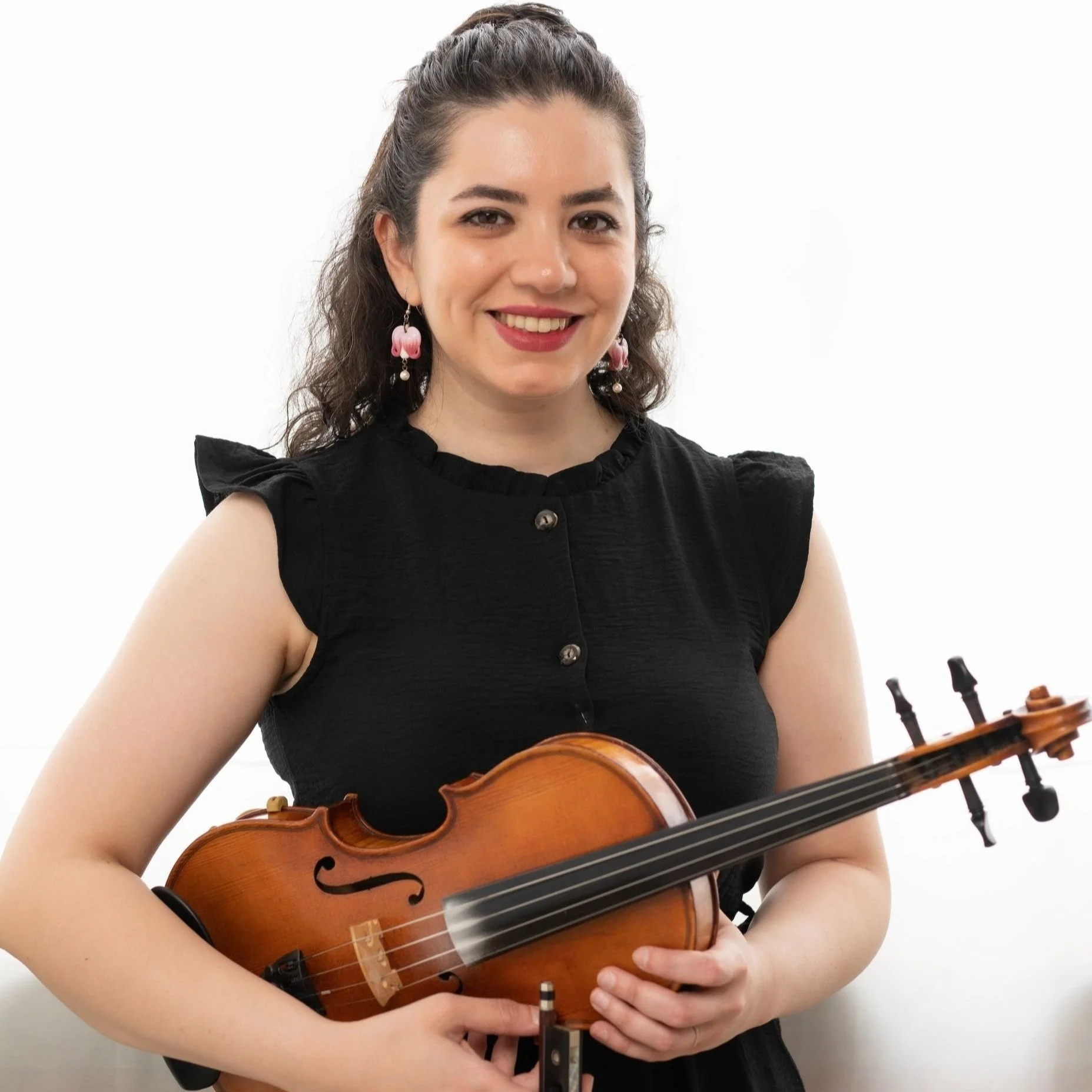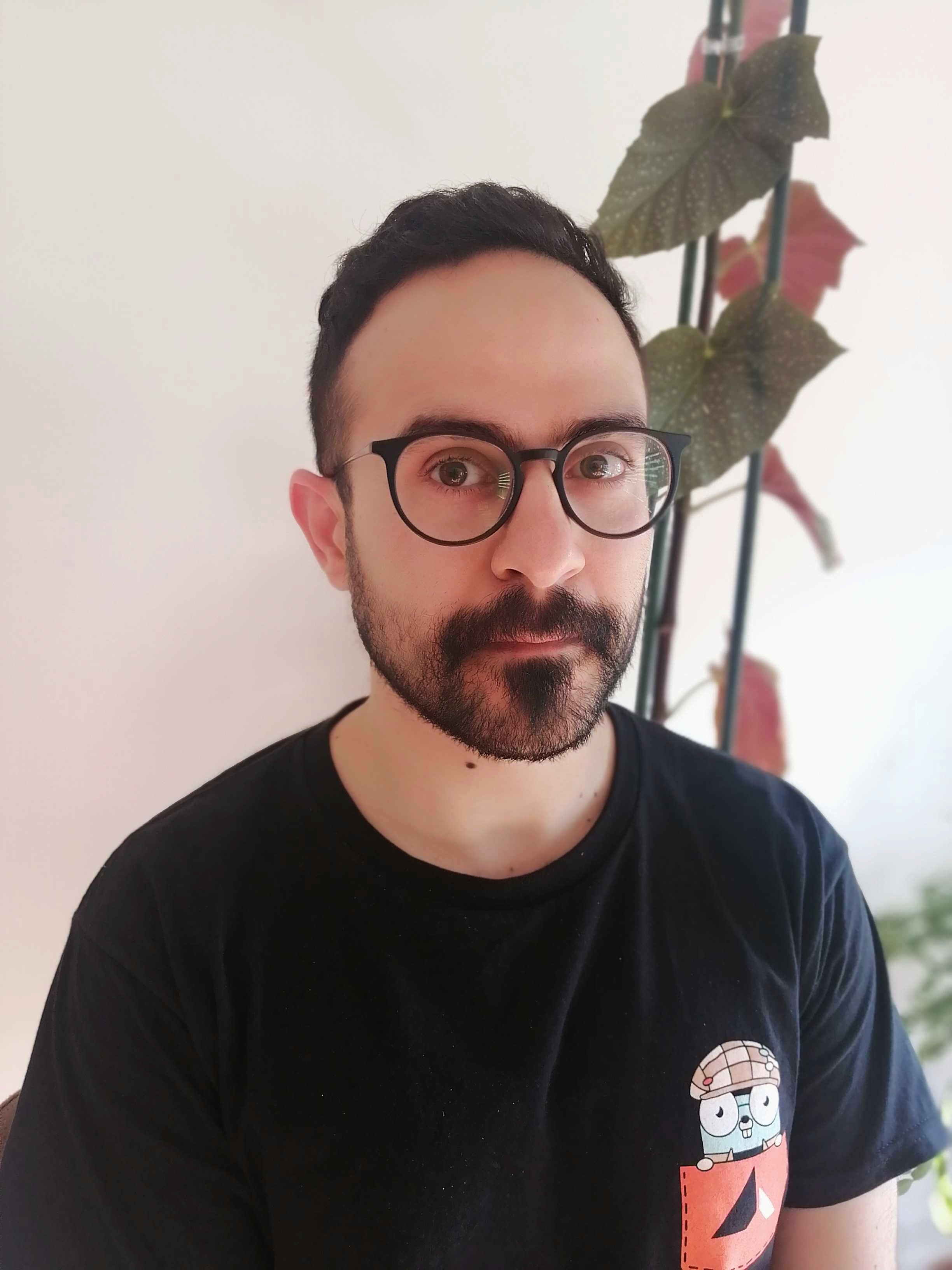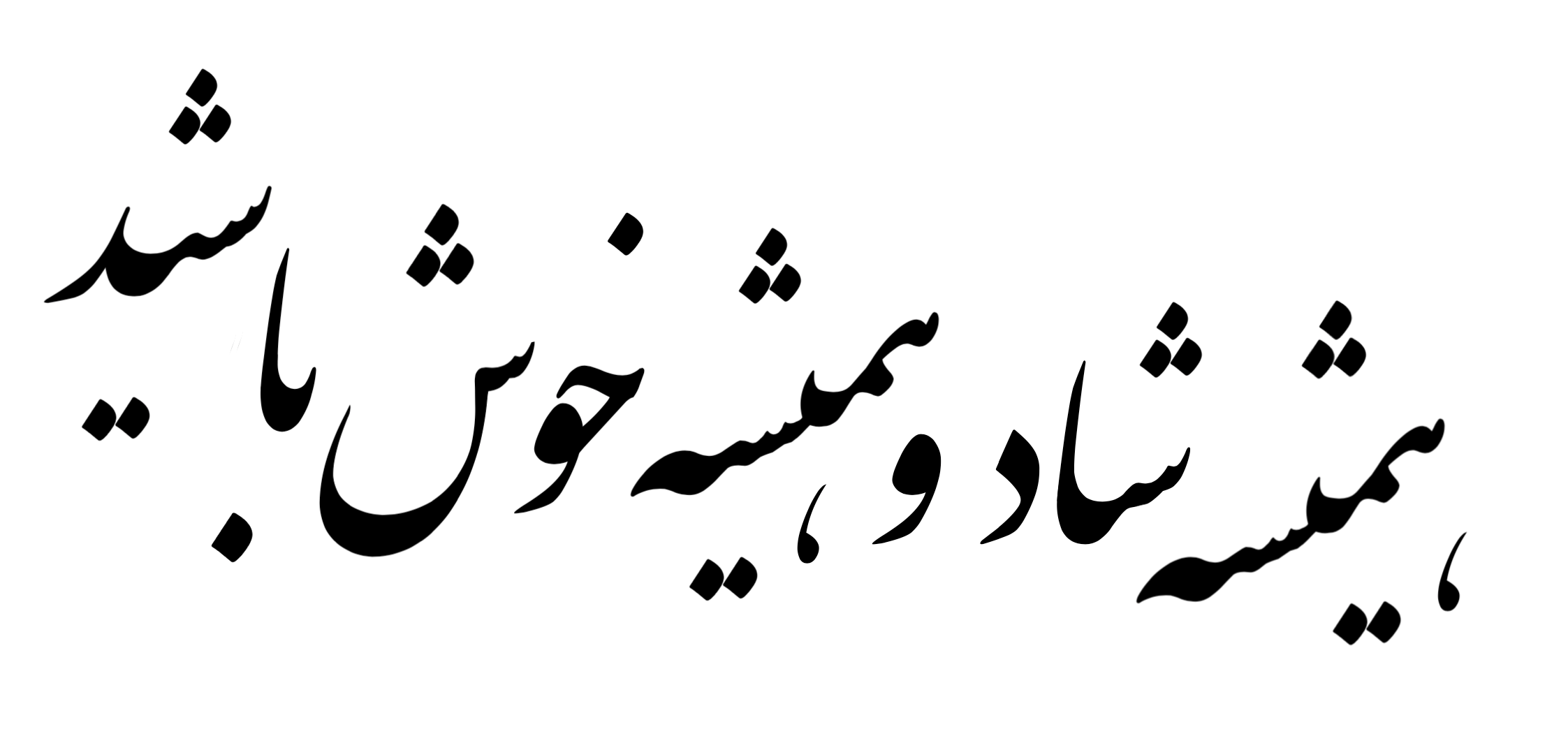
Program:
-
Darvish Khan (1872-1926)
Arranged by Kousha NakhaeiParichehr & Parizād was one of the first operettas performed in Iran, around 1920, with a libretto by Reza Kamal Shahrzad and starring Madame Pari Aghababov. Apart from this melody attributed to Darvish Khan, little is known about the original production. This arrangement is based on a version orchestrated and arranged by Rouhollah Khaleghi around 1960, as well as a later adaptation by his daughter, Golnoosh Khaleghi, in the 1980s.
Though revered as one of the high points of traditional Iranian music today, Darvish Khan’s music represents the crossroads of tradition and modernization.
-
Hossein Dehlavi (1927–2019)
Adapted by Kousha NakhaeiComposer, arranger, and conductor Hossein Dehlavi belonged to the generation of musicians who succeeded Rouhollah Khaleghi and the composers of the Golha radio programs. He continued their legacy by creating works for orchestras that combined Iranian and Western instruments side by side.
A student of the renowned master Abolhassan Saba (1902–1957), Dehlavi arranged many of Saba’s works for orchestra, including Shushtari, which is based on a chaharmezrab also known as Be Zendan. Shushtari remains one of Dehlavi’s best-known compositions. This adaptation is scored for a slightly smaller orchestra than the original.
-
Morteza Mahjoubi (1899–1965)
Lyrics: Rahi Mo’ayyeri (1909 - 1968)
Arr. R. KhaleghiThis tasnif in the Dashti mode was inspired by a deeply evocative scene: according to the composer, the piece originated from the sound of a shepherd's ney (reed flute) heard during a trip to Northern Iran (Shomal) as the sun set and the flock returned from the pastures. This tasnif was originally sung by the master vocalist Banan and later arranged for orchestra by Khaleghi, and it was recalled by Mahjoubi as one of his personal favourites.
نی محزون داغ مرا تازه تر از لاله کند زجداییها چو شکایت کند و ناله کند
“The sorrowful flute, more searing than a tulip's scar, revives my wound when it complains and laments of separations.”
-
Mohammad-Reza Fayyaz
Arr. Kousha NakhaeiThis piece was released as part of a collection of pieces for Iranian Instrumental Ensemble by M.R. Fayyaz. Originally written for a kamanche quartet, in this concert we hear it with golha style orchestration. Fayyaz is among the generation of Iranian music composers who set out to discover and use polyphonic composition techniques that are derived from Iranian dastgah (modal) theories instead of merely borrowing from Western idioms.
-
Reza Vali
Arr. Kousha Nakhaei
Ashoob (Calligraphy No. 14) is the fourteenth set of an ongoing cycle of works based on the Persian modal system, the Dastgâh, which I have been composing since 2000. The basic compositional material of the work is derived from a fast –tempo genre, called the Reng, which is usually performed at the end of a traditional Persian music concert. -
Reza Vali
-
Ali Tajvidi
Lyrics:
Arr. K. Nakhaei -
Ahmad Pejman
Soraan is the first movement of Pejman’s Divertimento, one of his last compositions before his death in 2025. He was a highly respected Iranian composer and educator.
“Soraan is one of the oldest Iranian cultures in the Kurdistan region, with a very interesting music. I named the 1st movement 'Soraan' because it employs a Kurdish motif. (…) Since I came to know myself, I've been very interested in Iran and Iranian culture. Iranian music (and I don't just mean the radif) has many inspiring elements. Iranian regional music is extremely diverse, and an Iranian composer must have listened to it and drawn inspiration from it. Ultimately, though, it all comes down to yourself. One must be honest with oneself and do what one loves.” (A. Pejman - Interview with Cadence Magazine, 2018)
-
Hooshyar Khayyam
Stained Glass (for piano and strings) was composed by Hooshyar Khayam 2006. Moving beyond the familiar structures of musical forms like the concerto, this piece presents a unique texture and aims to showcase the expressive capabilities of the string instruments. The work is directly inspired by the intricate, patterned stained-glass windows (Gereh-Chini) found in traditional Iranian architecture.In Stained Glass, the string texture begins with a unifying unison performance, immediately evoking a lyrical melody that continuously transforms and shifts in color throughout the piece. Meanwhile, the solo piano acts as the Orosi (the large sash window) and the Gereh-Chini (the intricate latticework), through which the lyrical strain of the strings is persistently heard. These two distinct textures ultimately converge in a final section in agreement and unity.
-
Rouhollah Khaleghi (1906-1965)
Lyrics: Rahi Mo’ayeri (1909-1968)
Artist Bios:
-
Kousha Nakhaei is a conductor, violinist, kamanche player, and educator. He co-directs Sarv Music Academy, a music education centre he co-founded in 2013, curating a multifaceted music education program. He serves as the artistic director for Canadian Golha Orchestra, Sarv Strings and Sarv Choir and regularly arranges music for these groups. As an instrumentalist, he has performed with artists such as Sepideh Raissadat, Ali Rostamian, Naser Masoudi, and Loreena McKennitt. He has toured in Canada and the US with the Sarv Ensemble, Canadian Arabic Orchestra, and Canadian Golha Orchestra. He recently completed an intensive conducting course with Kenneth Keisler.
-
Habib Hoseini is a Persian classical singer living in Canada. He was one of 35 young singers selected by the renowned master Mohammad Reza Shajarian in a 2007 audition to attend Shajarian’s vocal technique and repertoire classes. He continued his studies with ostad Shajarian for seven years. Habib has performed at multiple international venues as a soloist and has recorded albums in collaboration with both Persian and international musicians. He has also been invited to perform at several prominent music festivals and events, including the Tirgan opening ceremony in 2017 and the music departments of McMaster and Alberta Universities in 2018. Additionally, he received a grant from Centre des Musiciens du Monde and Conseil des Arts de Montreal to perform an eight-concert tour in Montreal during 2019-2020. Habib’s singing is rooted in Persian classical and folk music; however, living in Canada has allowed him to expand his experience through collaborations with musicians from diverse cultures and nationalities, including English, French, Turkish, and Arab artists. Habib also holds a Ph.D. in Artificial Intelligence and has an extensive background in automatic audio, speech, and music signal processing and analysis.
-
Born in Tehran, Bijan Sepanji is a Canadian-Iranian performer and educator based in Toronto, Canada. As a member of the Ton Beau String Quartet, Bijan regularly performs new compositions by Canadian composers alongside well-known classical works by 18th, 19th, and 20th-century composers. So far, he has performed concerts across Canada, as well as in China, Turkey, Iran, Italy, and the USA. In the past two seasons, Bijan has played numerous concerts and given masterclasses with The Ton Beau at the University of Lethbridge in Alberta, Vanderbilt University in Nashville, Tennessee, and in Chicago, Illinois. Additionally, Bijan has also performed a violin recital and conducted workshops in his hometown at the University of Tehran, as part of a composition competition for the university's students. Having studied at Indiana and McGill universities, Bijan’s orchestral experience includes performances with the Indianapolis and Kitchener-Waterloo symphonies, as well as with Sinfonia Toronto, Espirit Orchestra (Toronto), London Symphonia, Hamilton Philharmonic, and the Toronto Concert Orchestra.
-
Narek is a pianist with a Master's Degree in Piano Performance from the University of Toronto. He also holds a Bachelor's Degree in Piano Performance from the Komitas State Conservatory of Yerevan, where he graduated with the prestigious Red Diploma. Narek is a first prize winner of the Youth National Music Competition in Iran and a recipient of the Alice & Armen Matheson Entrance Scholarship at the University of Toronto. He has performed internationally as a soloist, chamber musician, and accompanist, with notable appearances across Canada, Armenia, and Iran.
COMPOSERS
Canadian Golha Orchestra
Conductor: Kousha Nakhaei
Violin 1:
Bijan Sepanji (Concertmaster)
Aysel Taghi-zada
Elena Spanu
Violin 2:
Saba Yousefi
Rezan Onen-Lapointe
Viola:
Matt Antal
Rae Gallimore
Cello:
Emma Scmiedecke
Niki Khabbazvahed
Double Bass:
Daniel Lalonde
Flute:
Rana Mireskandari
Clarinet:
Peter Stoll
Tar:
Shahin Fayaz
Tonbak:
Sasan Salaseli
Piano:
Narek Abrahamian
We acknowledge the support of following organizations:
DIAMOND SPONSOR:
CGO & GIMC Team

